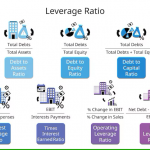Investors are no longer limited to domestic markets in today’s interconnected world. Because why should they be? Global market diversification offers a new realm of opportunities to investors looking to expand beyond their borders. Investing internationally allows for increased portfolio diversification, reducing risk and potentially maximizing returns. By spreading your investments across different countries and industries, you can mitigate the impact of localized economic or political events that may affect a specific market.
Moreover, investing in global markets provides access to emerging economies and industries with high growth potential. Developing countries like China, India, and Brazil are experiencing rapid economic expansion, offering investors the chance to capitalize on these trends. These markets often have different economic cycles and growth patterns compared to mature economies, which can help balance out the fluctuations in your portfolio.
Another key benefit of global market diversification is the opportunity to take advantage of currency fluctuations. As exchange rates change, investments in different currencies can offset losses in one market with gains in another. This can help to stabilize your overall portfolio performance and protect your assets from the volatility of a single currency.
Global market diversification statistics
According to a study by Vanguard, investors who diversify their portfolios globally can potentially reduce their risk by up to 30% compared to those who invest solely in their domestic markets. The MSCI All Country World Index, which tracks stocks in both developed and emerging markets, has outperformed the S&P 500 index over the long term, demonstrating the potential benefits of global diversification.
Furthermore, a report by Morningstar found that over the past decade, the average annual return for a globally diversified portfolio was 7.4%, compared to 6.9% for a U.S.-only portfolio. This underscores the importance of looking beyond domestic borders to potentially enhance your investment returns.
It’s worth noting that the level of global diversification can vary depending on an individual’s risk tolerance and investment objectives. Some investors may opt for a more balanced approach, allocating a portion of their portfolio to international investments, while others may choose to have a more concentrated global exposure. Regardless of the approach, the data suggests that incorporating global diversification into your investment strategy can be a prudent move.
Factors to consider when investing globally
When investing in global markets, it’s crucial to understand the unique factors that can impact the performance of different countries and industries. These include economic conditions, political stability, regulatory environments, and cultural differences, among others.
Economic factors such as GDP growth, inflation rates, and interest rates can significantly influence the performance of a particular market. Investors should closely monitor these indicators to identify opportunities and mitigate risks.
Political stability is another crucial consideration. Investors need to be aware of the potential impact of government policies, political transitions, and geopolitical tensions on their investments. Countries with stable political environments and strong institutions are generally seen as more attractive investment destinations.
Developing a global investment strategy
Crafting a well-rounded global investment strategy requires a thorough understanding of the various markets and a careful evaluation of your investment objectives, risk tolerance, and time horizon.

One approach is to start by allocating a portion of your portfolio to international investments, gradually increasing the global exposure as you become more comfortable with the process. This allows you to dip your toes into the global markets while maintaining a level of diversification within your domestic holdings.
Another strategy is to focus on specific regions or countries that align with your investment goals. For example, if you’re interested in tapping into the growth potential of emerging markets, you might consider allocating a portion of your portfolio to countries like China, India, or Brazil. Conversely, if you’re seeking more stability, you might look to developed markets in Europe or North America.
Top countries for global market diversification
When it comes to global market diversification, several countries stand out as attractive investment destinations:
- United States: As the world’s largest economy, the United States offers a deep and liquid stock market, with a diverse range of industries and leading multinational corporations. The U.S. market is often seen as a safe haven for investors, providing stability and potential for long-term growth.
- China: The world’s second-largest economy, China has experienced remarkable economic growth in recent decades, driven by its rapidly expanding middle class and technological advancements. While investing in China comes with its own set of risks, the country’s vast consumer base and innovative industries make it a compelling investment destination.
- Japan: Known for its high-tech manufacturing and innovative companies, Japan is a major player in the global economy. Despite facing economic challenges in the past, the country’s strong corporate governance and focus on quality have made it an attractive option for investors seeking exposure to developed Asian markets.
- Germany: As the largest economy in Europe, Germany is a hub for industrial and technological innovation. With a stable political and economic environment, Germany offers investors access to a diversified range of industries, including automotive, machinery, and chemicals.
Benefits of Investing in Emerging Markets
Investing in emerging markets can offer a range of benefits for investors. One of the primary advantages is the potential for higher returns. Emerging markets often experience rapid economic growth, which can translate into significant gains for investors who time their investments correctly. These markets are typically less mature and less efficient than developed markets, which means there is more room for price appreciation and market inefficiencies to be exploited.
Another benefit of investing in emerging markets is diversification. By adding emerging market investments to your portfolio, you can reduce your overall risk and exposure to a single market or region. Emerging markets often have a low correlation with developed markets, which means they can provide a hedge against market volatility and downturns. This can help to stabilize your portfolio and improve your long-term investment performance.
Furthermore, emerging markets offer exposure to growing consumer populations and expanding middle classes. As these economies develop, the demand for goods and services is likely to increase, creating opportunities for businesses and investors to capitalize on this growth. Additionally, many emerging markets are rich in natural resources, such as oil, gas, and minerals, which can be valuable assets for investors seeking exposure to these sectors.
Important Factors to Consider Before Investing in Emerging Markets
Before investing in emerging markets, it’s essential to carefully consider several important factors. One of the primary considerations is political and economic stability. Emerging markets can be more susceptible to political and economic volatility, which can impact the performance of investments. Investors should research the political and economic landscape of a particular market, including factors such as government policies, regulatory frameworks, and the overall economic outlook.
Another crucial factor to consider is currency risk. Emerging market currencies can be more volatile and subject to fluctuations, which can affect the value of investments. Investors should be aware of the potential for currency fluctuations and take steps to mitigate this risk, such as using hedging strategies or diversifying their investments across multiple currencies.
Additionally, investors should consider the level of transparency and corporate governance in emerging markets. Some emerging markets may have less-developed regulatory frameworks and lower standards of transparency, which can increase the risk of fraud or other unethical practices. Investors should conduct thorough due diligence on the companies and industries they are considering investing in, and be aware of any potential red flags or concerns.
Finally, investors should be mindful of the liquidity of emerging market investments. Some emerging markets may have less-developed financial markets and lower trading volumes, which can make it more difficult to buy and sell investments quickly. Investors should carefully evaluate the liquidity of their investments and ensure that they have a clear exit strategy in place.
Top Emerging Markets for Investment
When it comes to the best emerging markets to invest in, several countries and regions stand out. One of the most promising emerging markets is China. As the world’s second-largest economy, China has experienced rapid economic growth in recent years, driven by its large population, expanding middle class, and growing technological capabilities. Investors can gain exposure to China’s growth through investments in sectors such as technology, consumer goods, and infrastructure.
Another emerging market that has gained significant attention is India. With a population of over 1.3 billion people and a rapidly growing economy, India offers a vast consumer market and a thriving technology sector. Investors can explore opportunities in areas such as e-commerce, financial services, and renewable energy.
In Latin America, Brazil and Mexico are two emerging markets that have caught the eye of investors. Brazil, in particular, has a diverse economy with a strong agricultural sector, a growing middle class, and a robust technology industry. Mexico, on the other hand, has benefited from its proximity to the United States and its integration into the North American supply chain.
Africa is another region that has emerged as a promising investment destination. Countries like Nigeria, South Africa, and Kenya have experienced steady economic growth and are attracting investments in sectors such as agriculture, infrastructure, and financial services. These markets offer exposure to a rapidly expanding consumer base and a wealth of natural resources.
Emerging Market Industries with High Growth Potential
When investing in emerging markets, it’s crucial to identify industries and sectors with high growth potential. One of the most promising sectors is technology. Many emerging markets, such as China and India, have become global hubs for technology innovation, with thriving start-up ecosystems and a growing pool of skilled tech talent. Investors can explore opportunities in areas like e-commerce, fintech, and renewable energy technology.
Another high-growth sector in emerging markets is consumer goods and services. As the middle class in these economies expands, the demand for consumer products and services is expected to increase. Investors can look at opportunities in sectors such as retail, healthcare, and financial services, which cater to the growing consumer base.
The infrastructure sector is also an attractive investment opportunity in emerging markets. Many of these countries are investing heavily in infrastructure projects, such as roads, bridges, and transportation systems, to support their economic growth. Investors can explore investments in construction companies, engineering firms, and infrastructure-related funds.
Additionally, the agricultural and natural resources sectors in emerging markets offer significant growth potential. Countries like Brazil, Russia, and several African nations are rich in natural resources, such as oil, gas, and minerals. Investors can gain exposure to these sectors through investments in mining companies, energy firms, and agricultural businesses.
Risks and Challenges of Investing in Emerging Markets
While investing in emerging markets can offer tremendous opportunities, it also comes with a unique set of risks and challenges. One of the primary risks is political and economic instability. Emerging markets can be more susceptible to political upheaval, policy changes, and economic volatility, which can have a significant impact on investment performance.
Another risk is currency fluctuations. As mentioned earlier, emerging market currencies can be highly volatile, and this can affect the value of investments. Investors should be prepared to manage currency risk through hedging strategies or by diversifying their investments across multiple currencies.
Emerging markets can also have less-developed regulatory frameworks and lower standards of corporate governance, which can increase the risk of fraud, corruption, and other unethical practices. Investors should conduct thorough due diligence and be vigilant in monitoring their investments to mitigate these risks.
Additionally, emerging markets can have lower levels of liquidity, which can make it more difficult to buy and sell investments quickly. This can be particularly challenging during periods of market volatility or when an investor needs to exit an investment quickly.
How to Invest in Emerging Markets
There are several ways for investors to gain exposure to emerging markets. One of the most common approaches is through mutual funds or exchange-traded funds (ETFs) that focus on emerging market investments. These funds provide diversification and professional management, making them a relatively low-risk option for investors.
Another way to invest in emerging markets is through individual stocks or bonds. Investors can research and invest in specific companies or industries that are based in or have a significant presence in emerging markets. This approach requires more research and due diligence, but it can also offer the potential for higher returns.
Investors can also consider investing in emerging market-focused private equity or venture capital funds. These funds typically focus on high-growth companies in emerging markets and can provide access to opportunities that may not be available through public markets.
Finally, investors can explore investment opportunities in emerging market real estate or infrastructure projects. These investments can provide exposure to the growth of these markets and diversification within an investment portfolio.
Diversifying Your Portfolio with Emerging Market Investments
Investing in emerging markets can be an effective way to diversify your investment portfolio and reduce overall risk. By adding emerging market investments to your portfolio, you can gain exposure to different economic and political environments, as well as access to a wider range of industries and sectors.
When it comes to portfolio diversification, it’s important to consider the correlation between emerging markets and developed markets. As mentioned earlier, emerging markets often have a low correlation with developed markets, which means they can provide a hedge against market volatility and downturns. This can help to stabilize your portfolio and improve your long-term investment performance.
To effectively diversify your portfolio with emerging market investments, it’s crucial to carefully research and select the right markets and investment vehicles. This may involve investing in a mix of emerging market funds, individual stocks, and other asset classes, such as real estate or infrastructure. It’s also important to regularly monitor and rebalance your portfolio to ensure that your emerging market investments remain aligned with your overall investment strategy and risk tolerance.
Emerging Market Investment Strategies
When investing in emerging markets, there are several strategies that investors can consider. One approach is to focus on long-term, buy-and-hold investments. This strategy involves identifying high-quality companies or sectors with strong growth potential and holding onto them for an extended period. This can be particularly effective in emerging markets, where short-term volatility can be high, but long-term growth prospects are promising.

Another strategy is to take a more active, opportunistic approach to emerging market investments. This may involve identifying short-term market inefficiencies or mispriced assets and taking advantage of them through tactical trading or investment decisions. This approach requires a deeper understanding of the underlying market dynamics and a willingness to take on more risk.
Investors can also consider a barbell strategy, which involves allocating a portion of their portfolio to low-risk, stable investments (such as government bonds or blue-chip stocks) and the other portion to higher-risk, higher-potential-return investments (such as emerging market equities or private equity). This approach can help to balance the risk and return profile of an investment portfolio.
Finally, investors can explore emerging market-focused investment funds or managed accounts, which provide access to a diversified portfolio of emerging market investments. These investment vehicles are typically managed by professional fund managers who have in-depth knowledge of the markets and can provide guidance on navigating the unique challenges and opportunities of emerging markets.
Risks and challenges of investing internationally
While the potential benefits of global market diversification are substantial, investing internationally also comes with its own set of risks and challenges that investors must be aware of.
- Currency risk: Fluctuations in exchange rates can have a significant impact on the value of your international investments. Currencies can be volatile, and changes in exchange rates can lead to gains or losses in your portfolio.
- Political and regulatory risk: Political instability, changes in government policies, and regulatory shifts in foreign countries can affect the performance of your investments. Investors must closely monitor the political and regulatory landscape of the markets they’re invested in.
- Information asymmetry: Accessing reliable information and conducting thorough research on foreign markets can be more challenging compared to domestic markets. Investors may face language barriers, cultural differences, and limited access to data, which can make it harder to make informed investment decisions.
- Transaction costs: Investing in global markets often involves higher transaction costs, such as brokerage fees, currency conversion fees, and taxes. These additional costs can eat into your investment returns and should be factored into your overall strategy.
Tools and resources for global market research
Navigating the complexities of global markets can be daunting, but there are numerous tools and resources available to help investors make informed decisions:
- Economic and market data providers: Services like Bloomberg, Reuters, and S&P Global provide in-depth data and analysis on global economic indicators, market trends, and industry performance.
- Government and international organization reports: Organizations like the World Bank, the International Monetary Fund (IMF), and the United Nations offer valuable insights and data on the economic and political landscape of different countries.
- Industry and sector-specific research: Specialized research firms and investment banks often provide comprehensive reports on the performance and outlook of various industries and sectors across the globe.
- Online investment platforms and forums: Platforms like Morningstar, Seeking Alpha, and Reddit’s r/investing subreddit offer a wealth of information, analysis, and discussion on global investment opportunities and strategies.
Global market diversification trends
The trend towards global market diversification is expected to continue in the coming years, driven by several key factors:
- Increased globalization: As the world becomes more interconnected, the flow of capital, goods, and information across borders has accelerated. This has made it easier for investors to access and navigate global markets.
- Demographic shifts: The rise of the middle class in emerging markets, particularly in Asia, is driving increased demand for investment opportunities. Investors are looking to capitalize on the growth potential of these rapidly expanding economies.
- Technological advancements: Innovations in financial technology, such as online trading platforms and robo-advisors, have made it more accessible and cost-effective for investors to diversify their portfolios globally.
- Retirement and wealth management needs: As populations age and life expectancies increase, investors are seeking ways to generate long-term returns and manage risk through global diversification, particularly for retirement and wealth management purposes.
Conclusion and key takeaways
In today’s interconnected world, global market diversification has become an essential strategy for investors looking to maximize returns and manage risk. By expanding their investment horizons beyond domestic borders, investors can access a wider range of growth opportunities, reduce portfolio volatility, and potentially enhance their long-term investment performance.
However, venturing into global markets also requires a thorough understanding of the unique economic, political, and cultural factors that can impact different countries and industries. Careful research, risk management, and a well-crafted investment strategy are crucial to navigating the complexities of international investing.
As the trend towards globalization continues, the importance of global market diversification is only expected to grow. Investors who embrace this approach and stay informed about the latest trends and opportunities in the global markets may be well-positioned to capitalize on the potential rewards and navigate the challenges that come with investing beyond borders.
Investing in emerging markets can be a compelling opportunity for investors seeking to capitalize on the growth potential of these dynamic and rapidly evolving economies. However, it’s important to carefully consider the risks and challenges associated with these markets, as well as your own investment goals, risk tolerance, and time horizon.
If you’re an investor with a long-term investment horizon and a higher risk appetite, investing in emerging markets may be a suitable addition to your portfolio. By diversifying your investments across different emerging markets and sectors, you can potentially achieve higher returns and reduce your overall portfolio risk.
On the other hand, if you’re a more conservative investor or have a shorter-term investment horizon, the risks associated with emerging markets may not align with your investment strategy. In these cases, it may be more prudent to limit your exposure to emerging markets or to focus on more developed, stable markets. When in doubt, check with a trusted financial advisor.
Ultimately, the decision to invest in emerging markets should be based on a thorough understanding of the market dynamics, a well-developed investment strategy, and a careful assessment of your own investment goals and risk tolerance. By doing so, you can unlock the potential of emerging markets and position your portfolio for long-term success.






